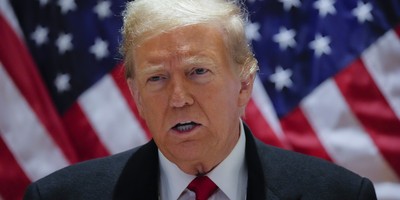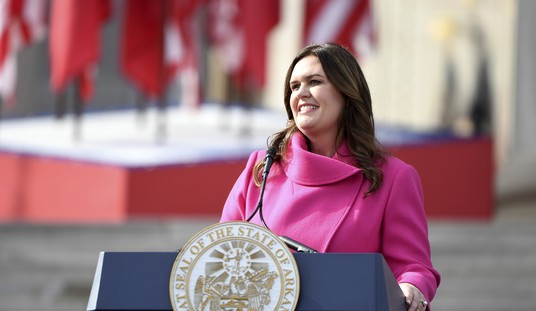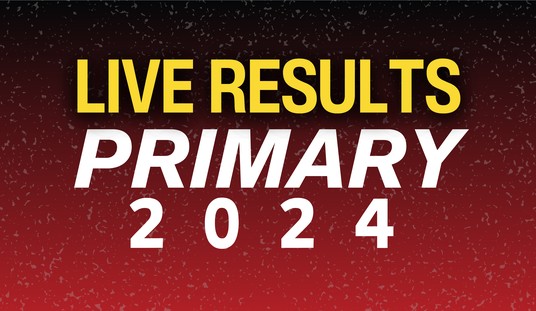An intended target saw smoke. The intended target, instead of ignoring the threat or fleeing, acted as a citizen defender.
The citizen defender, the New York City street vendor who saw smoke swirling from an SUV parked in Times Square this past Saturday, foiled a terrorist attack that could have killed and wounded innocents by the score.
The vendor tipped the police, and the law enforcement professionals intervened. I am not at all suggesting a street salesman in New York isn't a pro when it comes to sizing up suspicious characters and iffy situations. To survive as a sidewalk entrepreneur in The City That Never Sleeps, the vendor has to be good at reading faces and detecting attitudes -- in other words, he is a savvy situational and psychological profiler.
This is why cab drivers, sales clerks and hairdressers play key roles in every smart beat cop's neighborhood intelligence network. "Mind you own business" is fine advice to the chitchat crowd -- gossips create trouble -- but in a responsible and secure society, stopping street criminals is everyone's business.
Like the Dutch passenger who stopped the Christmas Terrorist from destroying a jumbo jet over Detroit, the New Yorker suspected trouble then acted. In the context of fighting a war against terrorists, both the passenger and vendor provided front-line defense at the point of attack. The terrorists had several initial advantages -- they selected the target and the time, and had the advantage of surprise. Surprise, however, did not translate into shock and capitulation. The citizen defenders acted responsibly despite evident risk.

We know front-line citizen defense does not always work. The passengers on Flight 93 tried to overwhelm the 9-11 terrorists who hijacked their aircraft, and the plane crashed in a Pennsylvania field. Their sacrifice, however, certainly saved the lives of hundreds of fellow citizens who would have died had the hijacked plane struck Capitol Hill.
Recommended
With great calculation, the 9-11 plotters sought to exploit weaknesses in U.S. national intelligence and police operations and in transportation safety measures. Considering al-Qaida's interpretation of the Clinton administration's actions in Somalia, the plotters believed they were exploiting a weak national will, as well. The plotters selected the targets and the time. They trained subordinates to attack with surprise, and to use remorseless violence to achieve shock. Citizen defenders provide the last, desperate defense against this type of terrorist operation, and of course it is inadequate.
Which is why the U.S. responded to 9-11 with an offensive warfare strategy. The U.S. strategy took the war to al-Qaida's heartland. The U.S. seized the initiative, selecting targets and time of attack. Al-Qaida lost its secure bases in Afghanistan. Al-Qaida suffered a major political and military defeat in Iraq. U.S. drones continue to kill terrorist leaders in Pakistan and Yemen.
As a result of this pressure, al-Qaida now conducts "lone actor" strikes like the Christmas Terrorist, or encourages "self-organizing" actors to launch their own attacks. I suspect Maj. Nidal Hasan's attack at Ft. Hood, Texas, is an example of the latter. Violent Islamist propaganda appeals motivated Hasan, and his behavior became increasingly antagonistic and erratic.
Hasan's route to terrorism generally follows the behavioral changes examined in the Foundation for Defense of Democracy's "Homegrown Terrorists in the US and UK." The radicalization process is not unique to Islamists. In the late 1960s, members of the hard-left Weathermen followed similar paths.
How do we thwart decentralized, self-organizing, "distributed" attacks? U.S. intelligence and police operations have improved dramatically since 9-11 --and public demand for improvement drove the process. The rapid arrest of Faisal Shahzad, the suspected Times Square attacker, testifies to improvements in intelligence-sharing and inter-agency cooperation.
An aware, alert and willing-to-act public, however, is the key to decentralized defense. This is a mindset more than a program or policy, and one that acknowledges in terms of security that after 9-11 we are our brother's keepers.
Americans are in a global war, and the U.S. homeland is a battleground. To win locally requires individual and community citizen policing in conjunction with civilian law enforcement agencies. To do anything less puts lives at risk and seeds the initiative to our terrorist enemies.

























Join the conversation as a VIP Member